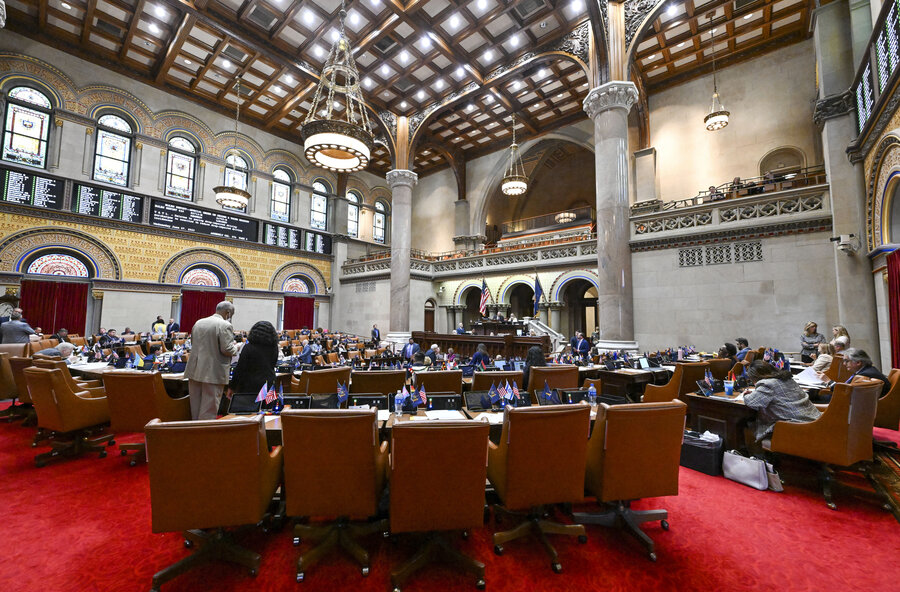'Healing our communities': New York moves reparations forward
Loading...
| Albany, N.Y.
New York would create a commission to consider reparations to address the lingering, negative effects of slavery under a bill passed by the state Legislature on Thursday.
“We want to make sure we are looking at slavery and its legacies,” said state Assemblywoman Michaelle Solages before the floor debate. “This is about beginning the process of healing our communities. There still is generational trauma that people are experiencing. This is just one step forward.”
The state Assembly passed the bill about three hours after a spirited debate on Thursday. The state Senate passed the measure hours later, and the bill will be sent to New York Gov. Kathy Hochul for consideration.
New York is following the lead of California, which became the first state to form a reparations task force in 2020. That group recommended a formal apology from the state for its legacy of racism and discriminatory policies and the creation of an agency to provide a wide range of services for Black residents. They did not recommend specific payment amounts for reparations.
The New York legislation would create a commission that would examine the extent to which the federal and state government supported the institution of slavery. It would also address persistent economic, political, and educational disparities experienced by Black people in the state today.
According to the New York bill, the first enslaved Africans arrived at the southern tip of Manhattan Island, then a Dutch settlement, around the 1620s and helped build the infrastructure of New York City. While the state Legislature enacted a statute that gave freedom to enslaved Africans in New York in 1817, it wasn’t implemented until 10 years later.
“I’m concerned we’re opening a door that was closed in New York State almost 200 years ago,” said Republican state Assemblymember Andy Gooddell during floor debates on the bill. Mr. Gooddell, who voted against the bill, said he supports existing efforts to bring equal opportunity to all and would like to “continue on that path rather than focus on reparations.”
In California, the reparations task force said in their report that the state is estimated to be responsible for more than $500 billion due to decades of over-policing, mass incarceration, and redlining that kept Black families from receiving loans and living in certain neighborhoods. California’s state budget last year was $308 billion. Reparations in New York could also come with a hefty price tag.
The commission would be required to deliver a report one year after their first meeting. Their recommendations, which could potentially include monetary compensation for Black people, would be non-binding. The legislature would not be required to take the recommendations up for a vote.
New York Assembly Speaker Carl Heastie, who is the first Black person to hold the position, called the legislation “historic.”
Mr. Heastie along with the governor and legislative leader in the state Senate would each appoint three qualified members to the commission.
Other state legislatures that have considered studying reparations include New Jersey and Vermont, but none have yet passed legislation. A Chicago suburb in Evanston, Illinois, became the first city to make reparations available to Black residents through a $10 million housing project in 2021.
On the federal level, a decades-old proposal to create a commission studying reparations has stalled in Congress.
Some critics of reparations by states say that while the idea is well-intentioned, it can be misguided.
William Darity, a professor of public policy and African and African American Studies at Duke University said even calling them reparations is “presumptuous,” since it’s virtually impossible for states to meet the potentially hefty payouts.
He said the federal government has the financial capacity to pay true reparations and that they should be the ones responsible.
“My deeper fear with all of these piecemeal projects is that they actually will become a block against federal action because there will be a number of people who will say there’s no need for a federal program,” Mr. Darity said. “If you end up settling for state and local initiatives, you settle for much less than what is owed.”
This story was reported by The Associated Press.







